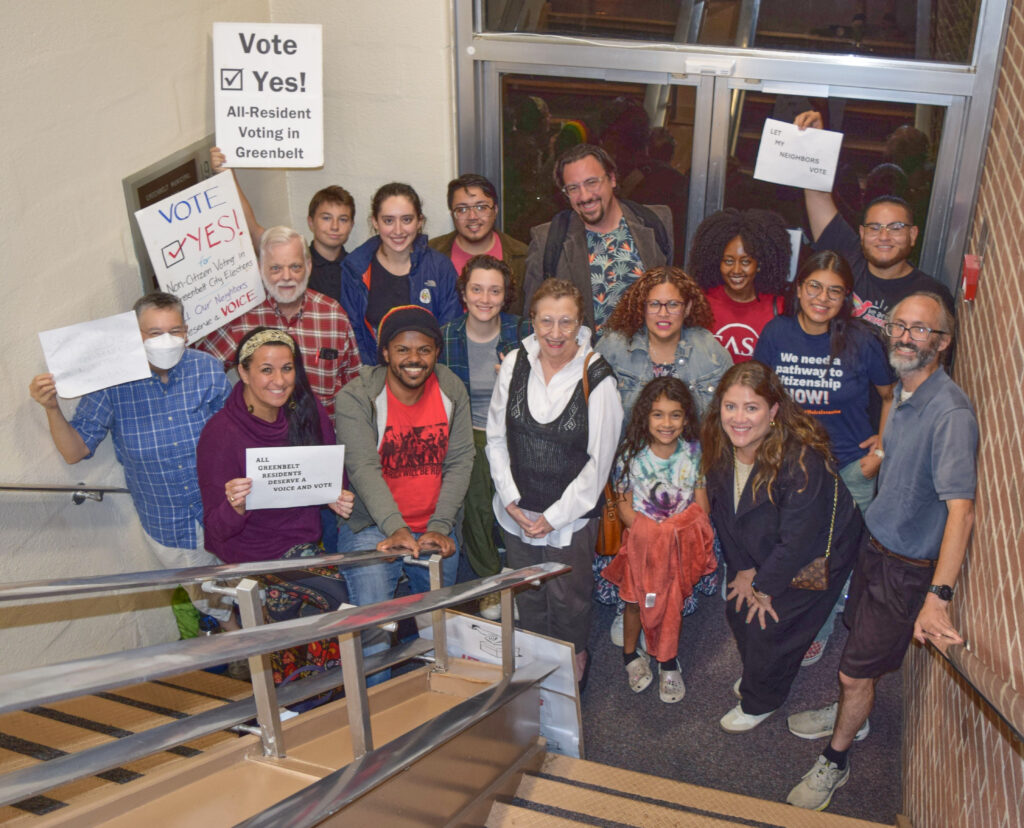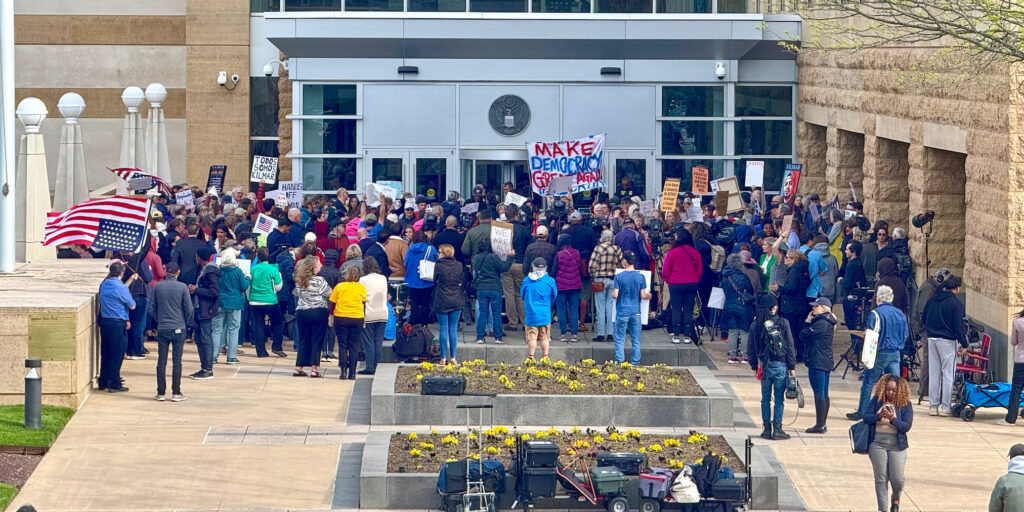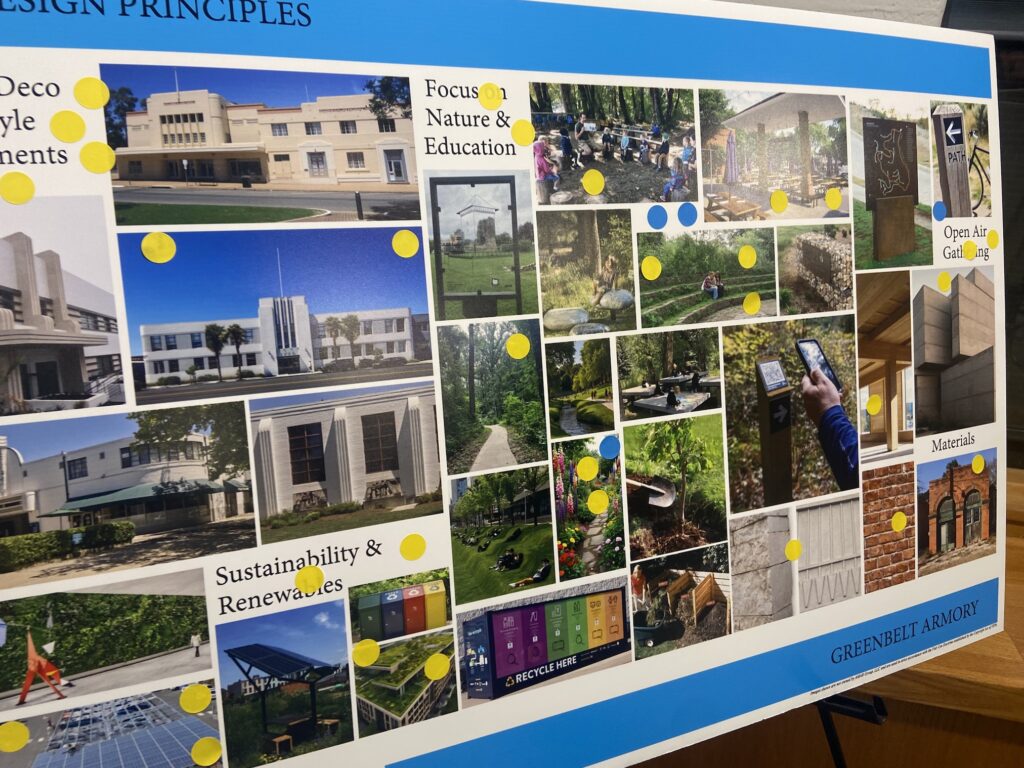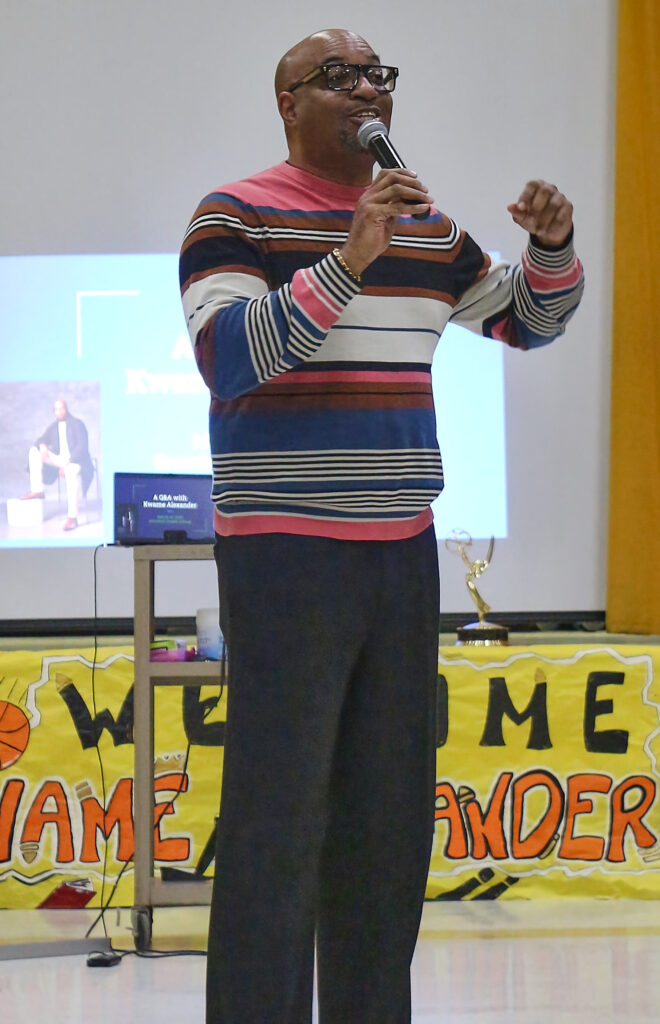On Monday, September 23, Greenbelt City Council held a public hearing on all-resident voting. Following the hearing the six councilmembers who were present voted unanimously to amend the city’s charter to allow noncitizens to vote in local elections.
In the November 2023 election the question of allowing noncitizens who meet residency requirements appeared on the ballot as an advisory question. 59 percent of voters responded yes, 30 percent responded no, and 11 percent did not respond.
The vast majority of the attendees at the council meeting on Monday were supporters of all-resident voting, including representatives from CASA, elected officials from surrounding areas, and supportive Greenbelt residents. The first speaker from CASA, a Maryland-based Latino and immigration advocacy-and-assistance organization, emphasized approximately 30 percent of Greenbelt residents are born outside the United States, higher than the national average of 13.5 percent and this kind of measure is “not radical or unprecedented.” [Editor’s Note: Country of birth does not necessarily correlate to country of citizenship.]
In Prince George’s County, Hyattsville, Mount Rainier, Colmar Manor and Cheverly have all adopted all-resident voting, as has Takoma Park in Montgomery County, which enabled noncitizen voting 30 years ago, and the town of Frederick, which amended their charter just last week. Likewise, the Local Resident Voting Rights Amendment Act of 2022 allows noncitizens who are D.C. residents to vote in local elections beginning this year.
Mount Rainier’s mayor, Celina Benitez, said that their city passed noncitizen voting in 2017 and urged Greenbelt to join the “cool” group of cities who have done so.
Speakers who took the podium at the meeting were universally in favor of the amendment. “I think it’s going to make our community stronger. I think it’s going to make our community more inclusive. I think when we listen to and include everyone it’s better for our entire community,” said John Appiah-Duffell of Gardenway. Residents and guests spoke of immigrants’ contributions to the community and the tax base. “Taxation without representation is fundamentally unjust,” said Chris Herman of Southway.
Resident Bill Orleans said the change was long overdue since it was first asked of and supported by residents in 2021 and again in the election 10 months ago. He suggested he would not be alive and perhaps members of the Youth Advisory Committee may not be alive when the council next amends the charter with other good suggestions they’ve received, such as electing council by district.
Frankie Fritz of Ridge Road pointed to recent marginalization of immigrant communities in national rhetoric and that “people are easy targets when they don’t have a voice in their political process.” The threats of violence against immigrants in Springfield, Ohio, reminded him of the bombings in Birmingham, Ala. to prevent people from having the right to vote. “All of these things are connected. All of these choreographies of violence that we see time and time and time again in our history rooted in the idea that we can’t let other people into our political process … we know are wrong,” he said. “We know that it will advance racial equity to do these things.”
Resident Michael Hartman asked what kind of outreach had been done to the noncitizen community and if interpretive services had been offered. He urged the council going forward to communicate to the noncitizen community in ways that will reach them, such as announcements home to parents through schools, via influencers in those communities, posters in shopping centers and houses of worship and in other ways they receive information.
Rick Ransom, chair of the Community Relations Advisory Board (CRAB), said CRAB enthusiastically supports the proposal. “I was born and raised here. I’ve been in Greenbelt almost all my life … I can speak with experience about what Old Greenbelt was like … Does that mean that I’m better qualified to speak about what’s good for Greenbelt in 2024 than someone who was not born here, did not grow up here? And I think the answer’s no,” said Ransom. He reminded council of the city’s community pledge to be a community that is open, accessible, safe and fair to all. He urged the amendment in the interest of being fair to all.
Lone Opposition
Resident Bob Rudd, who joined the meeting online, was the sole voice in opposition to the change to the city’s charter. Voting is a right of citizenship, reserved for those who go through the citizenship process, he told council. He pointed to the example of foreign-born Councilmember Silke Pope. He also cautioned council that the validity of future elections would be called into question and lawsuits may follow if they allow noncitizens to vote.
Pope, who has in the past spoken against noncitizens voting in local elections, was absent from the meeting. Mayor Emmett Jordan said Pope was unable to attend due to a follow-up from surgery. She had not responded to the News Review’s request for comment by the time of press.
Jordan pushed back on the idea that the measure has taken a long time. Since the advisory question on last year’s ballot an ordinance had to be drafted and code amendments made, he stressed.
Registration Requirements
Steve Gilbert of the city Board of Elections said he had suggested before noncitizens register to vote they should live in Greenbelt for a period of six months to a year and demonstrate some involvement in the city. However, the rest of the committee shot down those suggestions, he said. Consequently the only additional requirement is that noncitizens register 21 days before an election to allow the city clerk time to add their names. Before the next election there will probably be a need to employ staff to aid in the process, he said.
Noncitizens will be required to show proof of residence or sign an affidavit, noted Gilbert. Proof might include a driver’s license, a document from the University of Maryland, the State of Maryland or somewhere similar with your address in Greenbelt. Without a paper someone could take an oath and sign an affidavit, said Gilbert. “My main concern is that people actually have to live here,” said Councilmember Rodney Roberts, who asked if a homeless person could use the affidavit. Gilbert responded that it was arguable if they did not have a formal address and they would have to consider that. “I think it should be considered now,” said Roberts. Roberts said he wanted everyone to be treated fairly and go through the same process to register to vote.
“An affidavit is not a trivial document. You are stating under oath the contents of the affidavit … It’s the same as testifying in court,” said Gilbert, who is a retired lawyer. Roberts asked if there would be a penalty for falsifying an affidavit. Gilbert said with a false affidavit the decision to prosecute would be a state’s attorney decision, not a city decision. Councilmember Kristen Weaver said there’s a similar process to register in Maryland.
The council voted unanimously to amend the City Code and the City Charter to allow all-resident voting. The vote was 6-0, with Pope absent.
“Today Greenbelt takes an historic step forward in inclusive governance with the passage of all-resident voting. So it’s a reflection of our community’s commitment to ensuring that every resident has an opportunity to participate in the process. So by extending these voting rights to all adult residents regardless of citizenship status we recognize the vital contributions of our diverse population, where nearly 30 percent are foreign-born. As we move forward, joining neighboring municipalities in this progressive move, we reaffirm that in Greenbelt every resident counts,” said Jordan on the legislation’s passage.
Councilmember Jenni Pompi, who had introduced the resolution at the September 9 meeting, acknowledged the late councilmember Ric Gordon for whom this was a real passion, she said. “I’m sad he wasn’t here to see it today but I know he’d be really proud of his city,” said Pompi.




